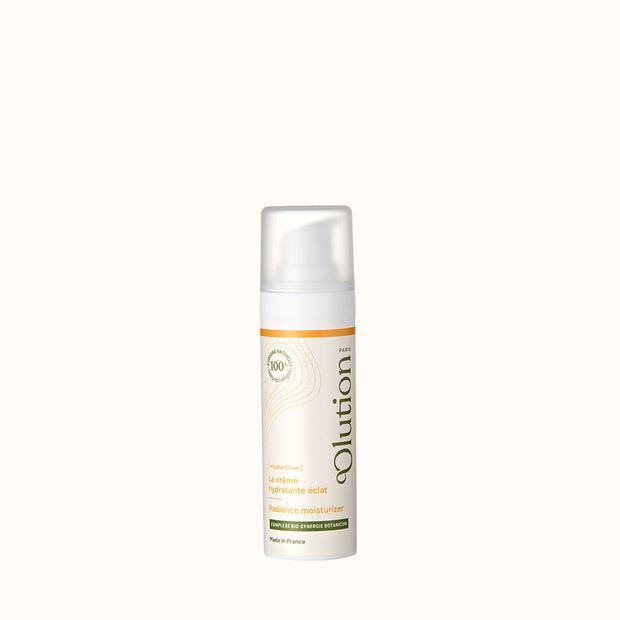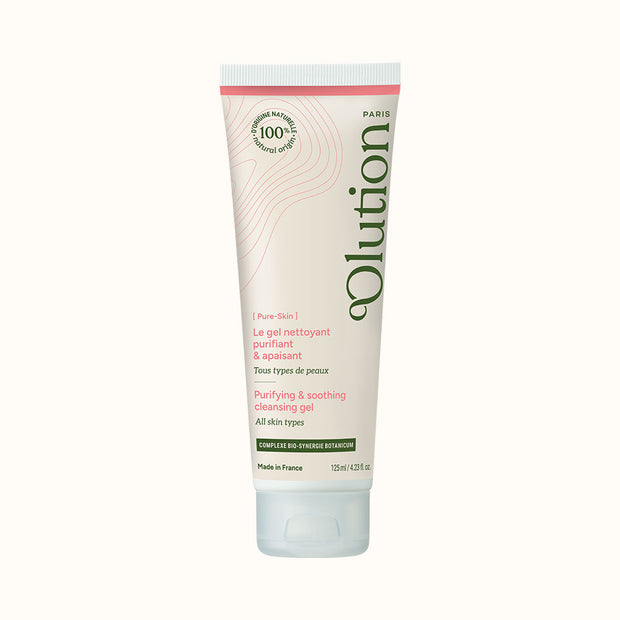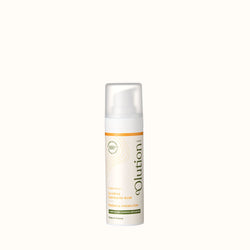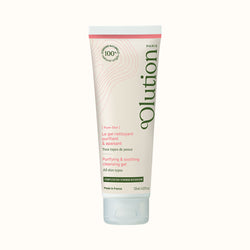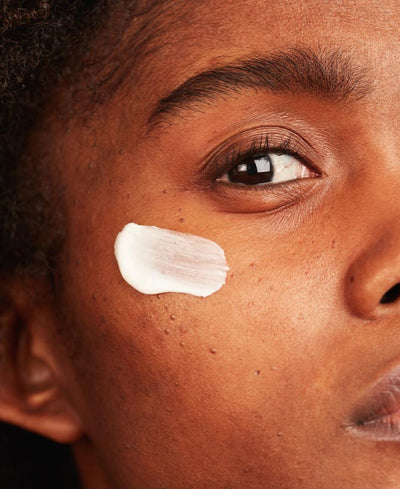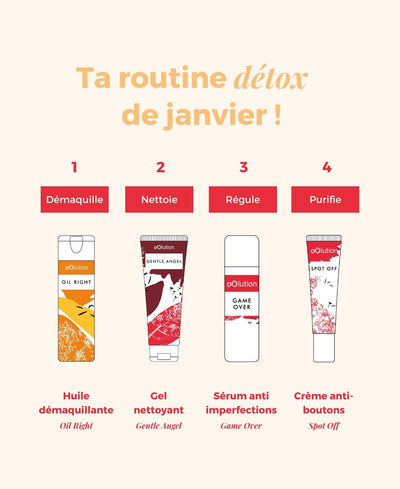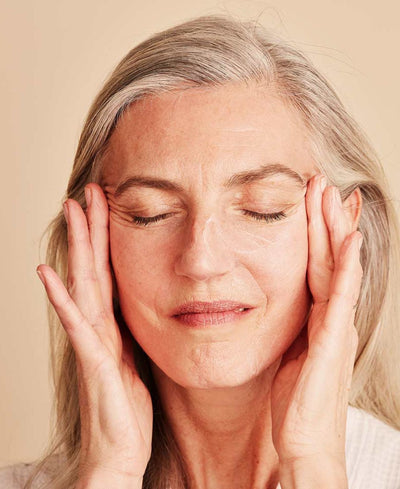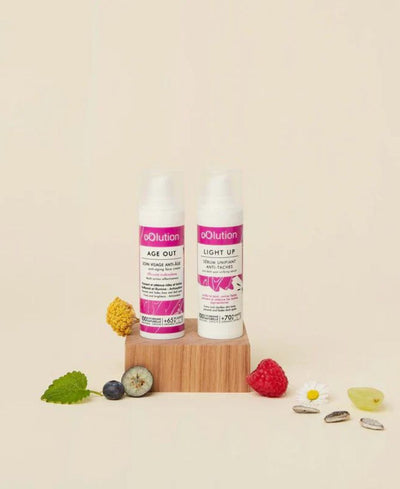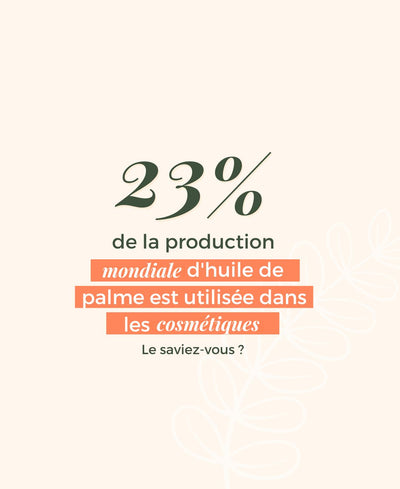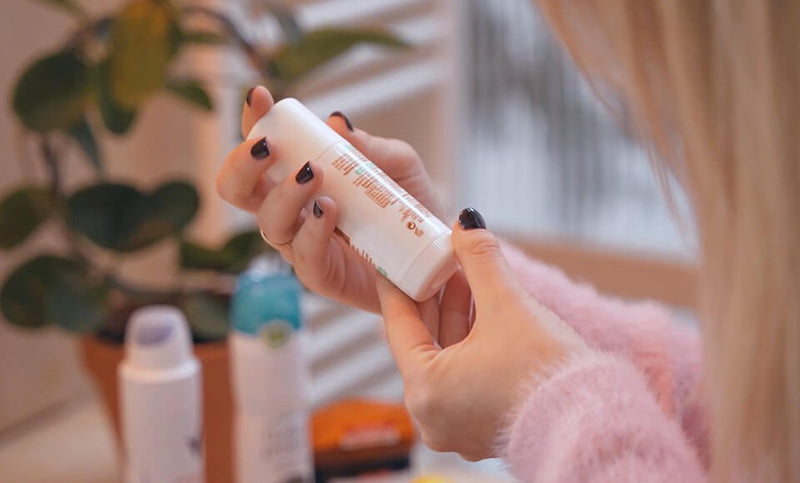
How to choose your deodorant? - Our natural advice
Written on 05.Nov.19 by Anne-Marie - Updated on Sep.30.21
In the morning, between brushing your teeth and getting dressed, it's a reflex: one armpit after the other, your deodorant routine is well established. Yet this gesture is far from trivial. What if we took a closer look at what we apply to this hyper-sensitive area on a daily basis?
Perspiration, a vital natural process
Do you know why we sweat in the first place? Heat, stress, physical exertion, fever... our body temperature regularly rises. Does it stray too far from the 37°C required for optimal functioning? Alert! Immediate activation of the cooling plan. In charge of operations? Our internal thermostat, the hypothalamus, which constantly monitors our temperature via sensors located all over our body.
As soon as necessary, it mobilizes the millions of eccrine sweat glands in our dermis: sweat, composed of water and mineral salts, is then secreted via the pores and evaporates, transferring our excess heat into the air. An eco-friendly air conditioner!
Sweating also helps to eliminate toxins and metabolic waste products , as well as hydrating the epidermis by contributing to the hydrolipidic film. A physiological mission not to be underestimated!
At last, our sweat has an important social role. And not just a negative one, due to unpleasant odours - quite the contrary! A 2nd category of sweat glands, the apocrine glands located in the armpits, genitals, groin and nipples, emit a slightly different kind of sweat .
Rich in pheromones, it creates an olfactory signature that is unique to us. And it's decisive in our social relationships: our amorous and sexual attractions owe a great deal to it. It's also what reassures newborn babies, who can recognize their mother's scent without error.
Deodorant: an important choice
If our sweat is so important, why try to hide it, limit it or even eliminate it? Sweating is a natural phenomenon, yes. But its effluvia are not in the odor of sanctity in our societies...
For a long time, it was hard to blame your neighbor for smelling bad: nobody smelled like a rose. Then the hygienist movement of the 19th century equated odors with poor hygiene and the risk of spreading disease.
Finally, in the 1970s, we became intolerant of strong natural odors- those of others as well as our own - with the development of bathrooms and... deodorants. So, above all, it's a social norm: not masking unpleasant odours when you have the chance is now seen as a real lack of good manners.
That said, from puberty onwards, our perspiration can become really smelly. The culprits? Our apocrine glands , which become active under the influence of our hormones and secrete a sweat richer in lipids and proteins. A feast for the bacteria in our skin flora, particularly numerous in the folds of our armpits.
But these bacteria have an olfactory digestion that is not very discreet... and is responsible for our perspiration odours. As a result, a simple heat stroke or strong emotion can make us smell strong in the morning, even with impeccable hygiene. In the elevator, the bus, the metro, in open spaces, it's hard to cope.
This makes deodorant a must. But choosing a deodorant shouldn't be left to chance. Because perspiration is an important physiological process. And because we apply our deodorants to a particularly sensitive area. Under our armpits, mammary glands, lymph nodes and numerous blood vessels are exposed to the substances we apply to thin skin, often made permeable by hair removal. So be careful!
How do you choose your deodorant?
With or without alcohol, 48-hour efficacy or intense freshness, excessive perspiration or sensitive skin, guaranteed streak-free, roll-on, spray, antiperspirant or even deodorant... The deodorant aisle can be a bewildering place. So how do you choose?
1st criterion: a method of action that respects my body
To counteract the inconvenience of perspiration, we can act on 2 fronts.
First solution: block sweat secretion. That's what antiperspirants do. It's not a bad idea: by attacking the source of the sweat, you eliminate all its consequences - odours and damp sensations - in one fell swoop. The problem? As we've seen, they interfere with a vital natural process, using substances that are far from recommendable: aluminum salts, which are neurotoxic and suspected carcinogens. Does a deodorant promise 24 or 48 hours without perspiration? Beware! Is it worth risking your health to avoid a few rings under your arms?
After all, you can combat unpleasant odours by letting your body naturally evacuate sweat. This is how deodorants work. They can mask undesirable scents with more pronounced, pleasant fragrances. Or, better still, prevent their formation by countering the proliferation of bacteria. An effective deodorant will also be able to absorb moisture and lightly regulate excessive perspiration through a gentle astringent action.
To find out more: Antiperspirants and deodorants: what's the difference?
2nd criterion: effective AND healthy active ingredients
What's at stake with the choice of active ingredients? The effectiveness of your deodorant, obviously. There are quite a few ingredients that tick this box. But also your skin, your health and the environment. That's all there is to it! And here, the candidates are less jostling for position...
You can already make a blacklist of all conventional deodorants. There's no need to bother studying them in detail. Why should you? Because they rely far too heavily on toxic aluminum salts. And those that avoid them can't escape synthetic fragrances that are allergenic or even endocrine-disrupting, denatured alcohol that is drying and toxic, and synthetic preservatives that are toxic and polluting.
So we prefer natural active ingredients? Yes, a thousand times yes! But beware: natural is not synonymous with harmless... Forget Alum stone, which also exposes you to aluminum salts, avoid irritating alcohol, even in its natural version, and avoid the disastrous palm oil that hides behind triethyl citrate.
However, there are still many safe and effective natural deodorant ingredients: plant powders and oils, hydrolats and other plant extracts. Make your choice according to how much you perspire and the sensitivity of your skin. What's best? Play with synergies for maximum effectiveness. Add to this list essential oils, powerful and fragrant, but to be avoided in cases of sensitive skin, allergy to perfume, and during pregnancy and breastfeeding. When properly formulated with quality active ingredients, a natural, fragrance-free deodorant will be just as effective.
Find out more:
Deodorant with natural, effective and safe ingredients: how to avoid aluminium salts?
3rd criterion: a galenic formulation that is practical, ecological and kind to my skin
The form in which your deodorant is presented, its galenic form, is a final important criterion. And not just for practical reasons. The most common: aerosol, spray, roll-on, jar, stick. How to choose?
Aerosols, their solvents and flammable propellants, which release Volatile Organic Compounds (VOCs), are already excluded. These pollutants, complicit in global warming, cause us to inhale substances that irritate the respiratory tract and eyes, and can cause headaches, nausea, cardiac and nervous disorders. Some are carcinogenic and endocrine disruptors.
Propellant-free sprays? They provide a pleasant sensation of freshness, but are neither environmentally-friendly nor economical: with each spritz, product is lost and evaporates. They don't last as long, often leave traces on clothes and frequently contain alcohol.
When it comes to practicality, it all depends on your needs: do you frequently carry your deodorant with you, or does it stay in your bathroom? Do you go through air traffic control regularly? A compact, non-liquid deodorant in stick or roll-on form is ideal. More personal criteria may also come into play: do you prefer the dry feel of a stick or the more moist feel of a roll-on? A more or less discreet scent?
Solid deodorants, in stick or jar form, are the best for our skin, our health and the environment. Formulated without water, they don't require over-powerful, and all too often toxic, preservatives. What a bonus! Add a soft texture, a more discreet fragrance and the best efficacy/skin-respect ratio.
The best? A balm rich in plant oils or butters that not only works perfectly as a deodorant, but also soothes and nourishes delicate, easily irritated underarm skin. Properly formulated, a balm can even be applied after waxing. If you have sensitive skin, this is the balm for you!
To sum up, choose a deodorant that respects your body, your skin and the environment:
- banish antiperspirants, which are harmful to health, and opt for a simple deodorant without aluminum salts,
- look for the most natural composition , but don't forget to scrutinize your deodorant's label to avoid irritating or problematic ingredients,
- opt for solid deodorants, ideally in balm form if you have sensitive skin.
Recommended products
